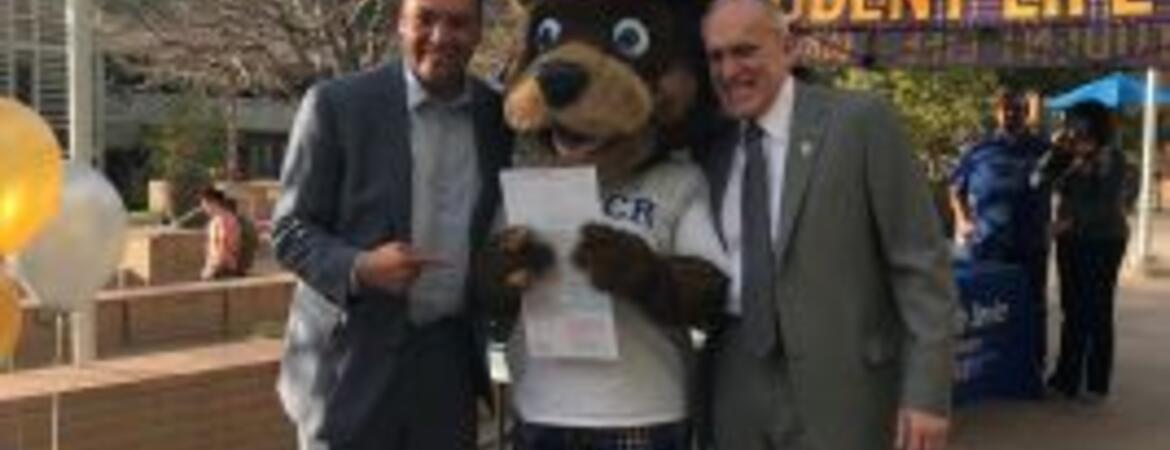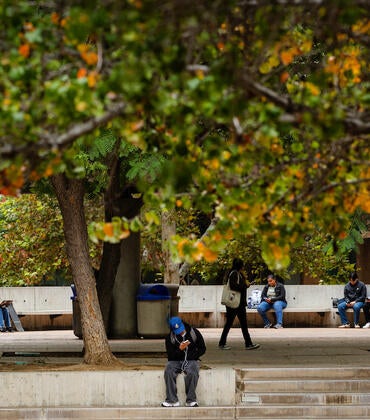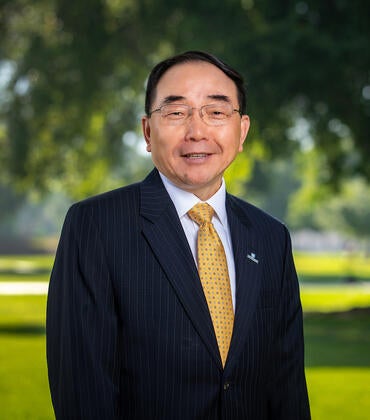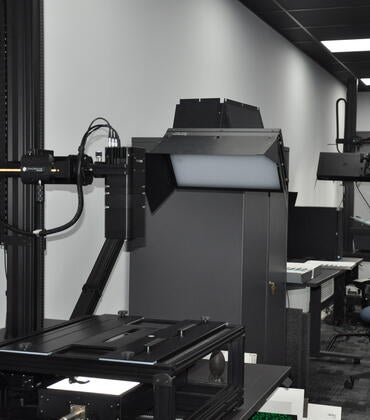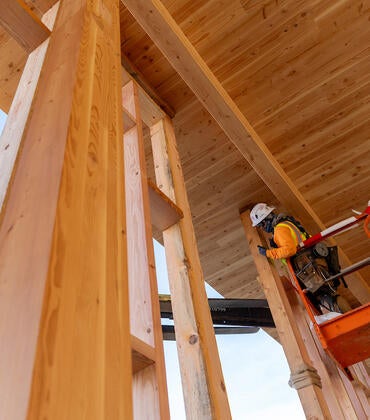Students from UCR’s School of Public Policy (SPP) got a front-row view of the political process during a visit earlier this week from California Secretary of State Alex Padilla.
Padilla met with an intimate group of around 15 students on Monday, Feb. 12, for an hourlong roundtable discussion moderated by SPP Associate Dean Karthick Ramakrishnan.
During their wide-ranging conversation, Padilla touched on topics including voter fraud, recent state efforts to make voting an easier and more efficient process for Californians, and the importance of ensuring a fair and accurate 2020 census count.
Regarding concerns about massive voter fraud in California — first expressed in a November 2016 Tweet by then-President-elect Donald Trump — Padilla reassured students that incidences of such fraud are “exceedingly rare.”
Instead, he highlighted some of the strategies he has employed to increase voter registration and turnout since being sworn into his role in January 2015. During his time in office, Padilla said, the state has added more than 2 million voters to its rolls — an accomplishment he attributed to leveraging new platforms and partnerships, including one with the University of California, to educate and empower first-time voters.
This April, the state will unroll the California Motor Voter initiative. Following Oregon’s lead, California is the second state in the country to adopt such legislation, which automatically registers eligible voters when they apply for or renew their driver’s license or state ID card at the Department of Motor Vehicles.
“You can opt out if you’d like, but if you’re eligible, the default will be registration,” Padilla explained.
In addition, his office sponsored the state’s Voter’s Choice Act, a law passed in 2016 to give Californians more flexibility in how they vote. Under this new framework, voters will receive their official ballots in the mail a month before the election. Counties will debut designated ballot boxes where voters can drop their ballots off far in advance of election day — without needing stamps.
And if voters decide they still want to vote in person, they can opt to visit a polling place of their choice instead of a predesignated location. The counties of Madera, Napa, Nevada, Sacramento, and San Mateo will pilot the new voting model in 2018, while the rest of the state will be eligible for participation in 2020.
The legislation, Padilla said, sprung from the realization that the traditional voting setup isn’t designed to accommodate modern lives. Moreover, the new system will have the added benefit of increasing awareness of upcoming elections.
“When voters get their ballots in the mail, there’s usually an uptick in people talking about the election, whether it’s within families or among coworkers or friends,” Padilla said. “We want to take advantage of that.”
Overall, he described boosting civic participation as a “collective responsibility,” noting it’s crucial for young people to understand in advance of the fall 2018 elections that “every election is important,” especially since only the presidency is determined by the electoral college’s vote.
Moving beyond talk of the 2018 elections, Padilla spoke about another component of civic activity — participation in the decennial census, which measures population and occurs next in 2020 — and why it should matter to Californians.
“The census is used to determine federal funding — for things like housing and transportation and health care, which are distributed to states on a per capita basis — for the next 10 years,” he said. “Equally, if not more significantly, the census determines our political representation in the House of Representatives. If there’s a significant undercount in states like California, we won’t get the representation in Congress that we warrant.”
In response to a question from Ramakrishnan about the Trump administration’s request to add a citizenship question to the 2020 census, Padilla said the action represented an attempt to “undermine” the census by intimidating certain groups of people from participating and sowing widespread distrust in the federal government.
“There’s no second chance to get the census right — we have one chance, and one chance only,” he added. “We’re starting to collaborate with not only the governor and the attorney general, but also the foundation world, labor unions, business leaders, and other community organizations across the state to start laying the groundwork for more public information about it.”
Following the roundtable discussion, Padilla joined UCR Chancellor Kim A. Wilcox outside the Highlander Union Building for a voter registration drive organized by the Office of Student Life in collaboration with the Associated Students of UCR and the Office of Governmental and Community Relations.
The son of parents who immigrated to Los Angeles from Mexico, Padilla described himself as “an organizer before I knew what organizing was.” He began managing political campaigns after earning a bachelor’s degree in mechanical engineering from the Massachusetts Institute of Technology, and in 1999, at just 26 years old, he was elected to the Los Angeles City Council before joining the California Senate in 2006.
“I’ll completely confess that when I was growing up, this is the last thing I thought I would end up doing,” Padilla said. “Running for office wasn’t exactly by design, but life had other ideas.”
